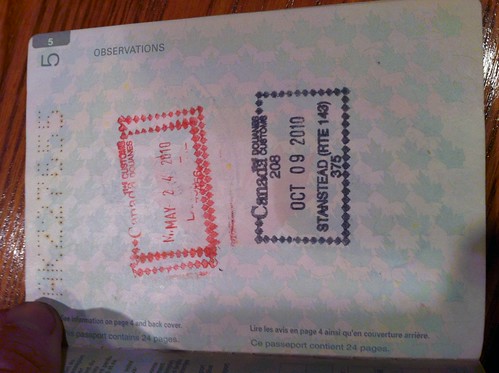If you apply to become a permanent resident in Canada, there is no guarantee that you will be accepted. Canada has very strict laws about who can or cannot enter the country. Take a look at some of their regulations, and also consider what you can do if you are denied entry into Canada.

Who Gets In?
Canada is looking for a very particular group of individuals to come into their country from overseas. These individuals have:
- Technical training
- Academic training
- Money
The country wants investors, business professionals, and engineers. They are looking to expand the number of researchers, scientists, and professors they can hire to work in scientific facilities, medicine, and universities. It is preferable that the applicant has post-graduate experience in his or her discipline or, if he or she is experienced in engineering or software, that the applicant has some experience in this field.
Applicants can also come in if they are sponsored by family members. A Canadian national could be the applicant’s spouse, parent, or sibling.
There are also applicants who are looking for refuge from a particular regime or political situation in a foreign country.
Why Would You be Denied?
The Canadian government has the right to deny entry to anyone, but usually bases its decisions on the following criterion:
- Financial ability to remain independent
- Criminal record
- Chance of finding work
- Medical conditions
- Ability to speak English or French
If you have a medical condition which will place strain on medical or psychiatric services, you could be denied. A criminal record could leave you at the border. Not having the right amount of experience or the sort of skills which the country is looking for, or not speaking enough English or French, could affect entry.
Change Your Situation
If you think you have been denied entry into Canada unfairly, appeal your case with the Canadian Embassy, or write to the Immigration Department directly looking for answers.
Often, however, the reason for rejection is clear. You might have a poor rating on the self-assessment. In this case, your application was a long shot to start with. It might be that all you need to do is wait a year, after which time you can improve your academic standing, take language courses, or gain a bit more experience in a job. Perhaps you needed to find an employer ahead of time, so send in some resumes.
A criminal record might include a DUI. There is a process to have this blot on your record removed so that a decade-old mistake no longer hinders you from entering the country as a citizen, or even just as a visitor. Canada is very strict about refusing entry to anyone with a DUI conviction.
Stewart Larry is as freelance writer and student at U of A. He writes about law, focusing on immigration. He has recently been writing to help people who have been denied entry to Canada.

